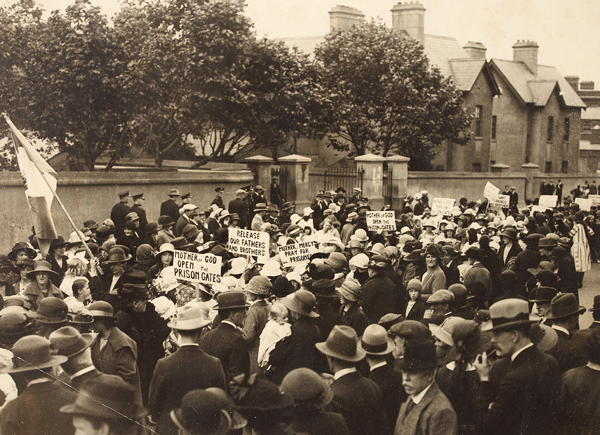‘Wild women’ drive republican resistance, journalist claims
22 March, Dublin - The key for defeating anti-Treaty forces in the ongoing Civil War is to target the ‘wild women’ who drive the republican resistance, a special correspondent for the London-based Morning Post newspaper has claimed.
In a report that has been reprinted in the Belfast Newsletter, the Dublin-based correspondent asserts that it is the women who ‘inspire, organise, plan, recruit, carry messages and weapons, spy, steal, deliver threatening notices, distribute the Republican Bulletin and perform all the essential tasks without which Liam Lynch and his acolytes would be as ‘helpless as babies in a bath.’
This perspective was offered in response to the recent wave of arrests of republican women, including a number of whom were picked up at premises on North St. George’s Street.
Margaret Ward explains why Cumann na mBan rejected the 1921 Anglo-Irish Treaty
The Morning Post’s correspondent argues that if the Government can manage to find prison accommodation for these republican women - Mountjoy is currently reported to have six people per cell - then it would prove a much more effective weapon in combating the campaign against the state than arresting several thousand republican youths. Unlike the women, it is suggested that these youths are ‘futile creatures - for the most part quite incapable of organisation or leadership.’
With the women in jail, it is asserted that the male republicans at large will offer little trouble. This is based on a brutal assessment of the capabilities of the Irish male. According to the Morning Post’s Dublin correspondent, ‘your Hibernian male is a poor fish without a tenth of the gumption possessed by his sisters, his female cousins, and his aunts.’
He continues:
‘Without the women and a handful of persistent foreigners like Childers and Griffith, or half-English like the MacSwineys, the Republican movement would never have made any headway against the British, and would not have lasted half as long against the Free State.’
[Editor's note: This is an article from Century Ireland, a fortnightly online newspaper, written from the perspective of a journalist 100 years ago, based on news reports of the time.]





















